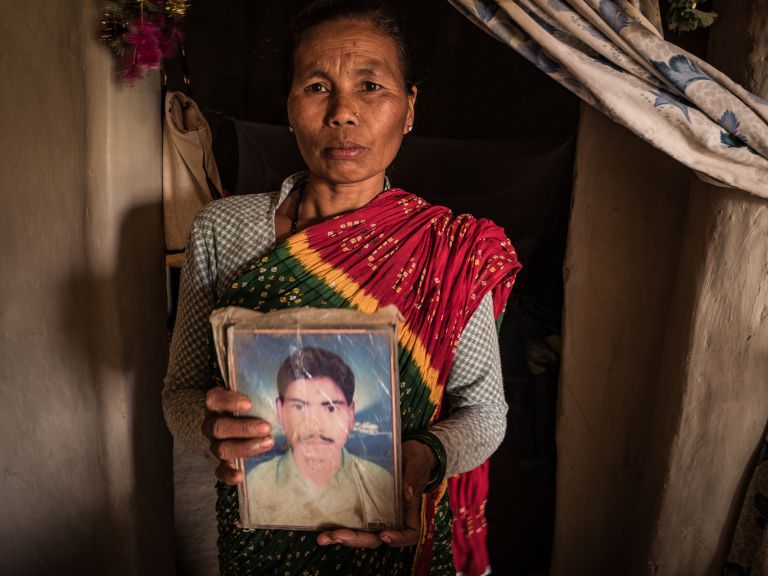Project Detail: Mahìla
Contest:
LuganoPhotoDays 2018
Brand:
LuganoPhotoDays
Author:
Nicola Zolin
Project Info
Mahìla
Mahìla
Light and Darkness for single Women in Nepal
A project by Nicola Zolin
The tumultuous recent history of Nepal stripped many men out of their families and left thousands of women alone. The civil war fought between 1996 and 2006 claimed the life of 19.000 people, before the Republic was established in 2008. A 7.8 magnitude earthquake hit Nepal on April 25th 2015, killing over 9.000 people and destroying half a million houses in a country of 29 million. These traumatic events had a devastating impact on what was already one of the poorest country in the world, creating a generation of young widows, living alone in remote rural areas, with several children to take care of.
According to tradition, in Nepal marriages are arranged by families and women move to their husband’s house. Their role in the household is most of the time limited to house keeping, children caring and support of the in-laws’ activities. Many women have to interrupt their education once they get married and few of them develop professional skills that would lead them to economic independence. Besides being a painful and disgraceful experience in its own, widowhood becomes even more dreadful in contexts where women are blamed to be responsible of their husband’s death by their in-laws families and by the community.
In several cases, women are forced out of the houses, frequently falling pray to verbal and sexual violence. They find themselves deprived of the social and economic support to provide for their children. Economic independence is the goal that few of them are able to achieve.
In most of Nepal’s territories, the unwritten rules of tradition still prevail over the increasingly egalitarian legislations of the young Republic. Isolated from the rest of the community, widows are obliged to wear white robes for at least one year and to constrain to a series of social rules that lead them to marginalisation. Legally, widows are allowed to remarry and to get some shares of the husband’s properties, but almost none of them manage to step over the delimiting walls of tradition. In most of the cases, they lose their husband’s property rights and end up barely surviving in situations of extreme poverty.
After attempting suicide for three times, in 1994 a young widow, Lily Thapa, moved the first steps towards an unexplored direction, founding Women For Human Rights Nepal (WHR). Today, the organisation brings together over 100.000 Nepalese women, gathering along the 1.5000 groups scattered over the 73 districts of the national territories. Women groups bring forward programs of psychological support, empowerment through trainings and legal support on property issues. Microcredit projects are designed to help women kickstart entrepreneur activities, benefiting their families as well as their communities.
After 20 years fighting against discrimination, the work of Women For Human Rights is nonetheless still a drop in the ocean. WHR operates in a patriarchy system in which males hold primary power. In spite of that, the tireless work of these women have achieved some results, also because the approach of the organisation reflects an already existing pattern in Nepalese society: the spirit of collectivity and mutual help. Nepalese women aren’t alone and WHR main activity is to encourage them to create and strengthen their networks, to bring forth a change in people mentality and a social and cultural development of Nepalese society.


















